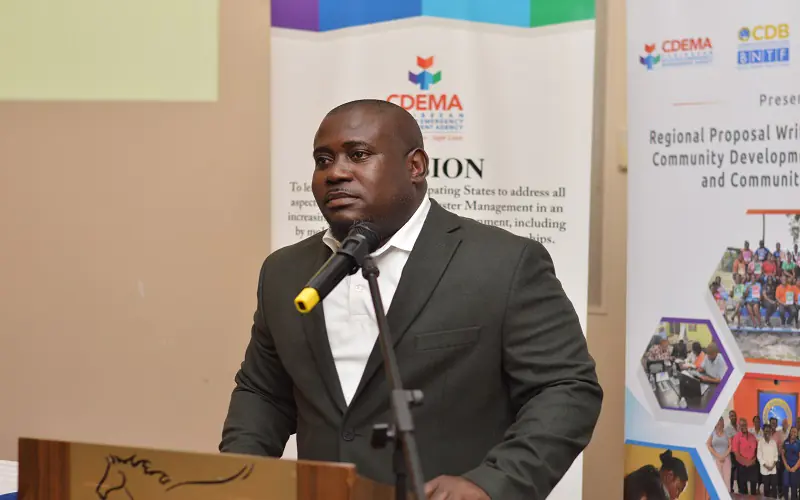- Mobilising Caribbean Communities for Resilience
Mobilising Caribbean communities and equipping them with the skills necessary to respond to and recover from natural disasters and climate change impacts are vital to building the region’s resilience.
This key lesson was shared by the Caribbean Development Bank’s (CDB) Community Development Specialist, Mr. Richardo Aiken, during the University of Wolverhampton’s recent online panel discussion at the Beyond Futures Festival of Research and Innovation. The panel featured speakers from the Caribbean, the Congo Basin and Somaliland.
Thirteen of CDB’s borrowing member countries (BMCs) experienced loss and damage estimated at USD 27 billion due to natural events between 2000 and 2017. The lessons learnt were gathered from community development best practices garnered through CDB’s Basic Needs Trust Fund (BNTF) and Community Disaster Risk Reduction Fund.
“Community capacity building is a transformative strategy for addressing poverty and enhancing community resilience. Increasingly, communities are getting more involved in deciding their priorities and implementing projects that they need for the community’s overall development,” said Mr. Aiken.
The BNTF conducted an assessment of community needs in three countries, providing valuable insights for implementing data-driven solutions, according to Mr. Aiken.
The Beyond Futures Festival of Research and Innovation was a three-day event organised by the University of Wolverhampton in England to showcase exceptional research, knowledge exchange, and public engagement.
“Our growing number of dedicated research centres and interdisciplinary research institutes work with commercial and civil society partners. In addition to producing first-class research outputs, they bring together scholars in a programme of research projects, conferences/seminars, and knowledge exchanges,” said Professor Prashant Pillai, Pro Vice-Chancellor for Research and Knowledge Exchange, referencing the university’s Centre for International Development and Training (CIDT), which organised the panel discussion.
The CIDT has partnered with the CDB for over a decade, including as the training partner on the CDB Project Cycle Management Training programme in all 19 BMCs. The CIDT is also partnering with the BNTF to deliver an innovative online training course on Community Engagement in the Caribbean context, with the first cohort expected to begin in October 2024.
The BNTF is the CDB’s primary tool for direct poverty reduction in the Caribbean. It addresses needs identified by vulnerable communities in areas such as water and sanitation, education, livelihood enhancement, and access and drainage, aiming to improve the quality of life for beneficiaries in its participating countries. Climate change adaptation and gender equality are cross-cutting themes of the programme.





